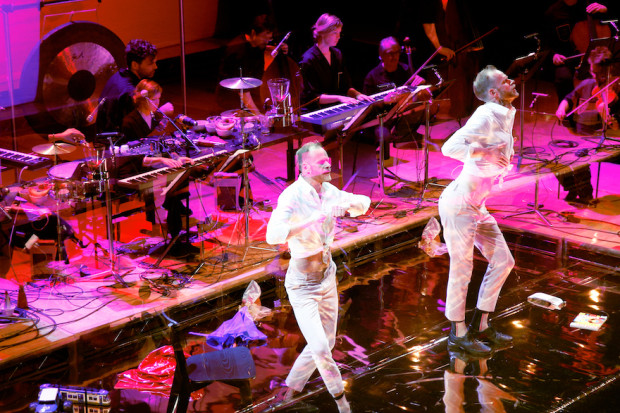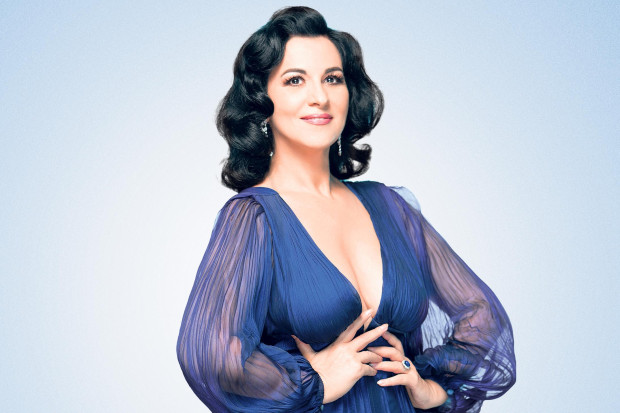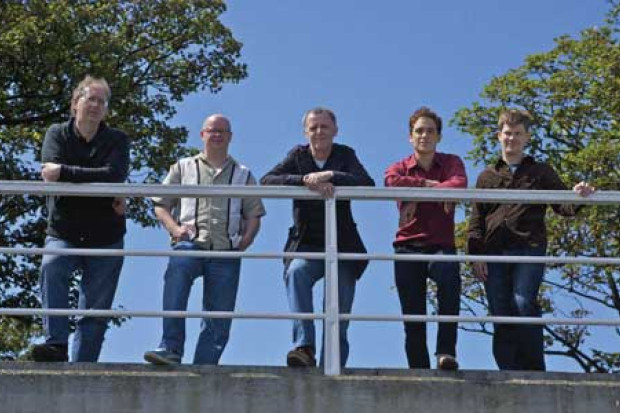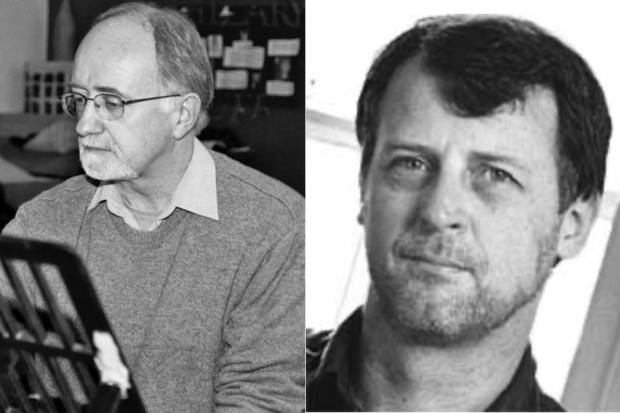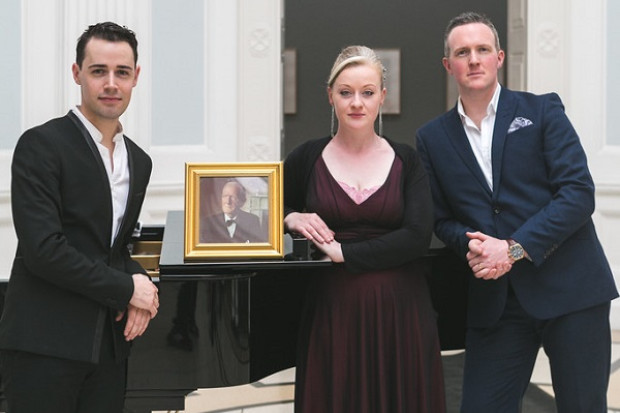Letters: John Adams at the RTÉ Living Music Festival
I would like to respond to a couple of points about the RTÉ LMF made in the last issue of the JMI. First off, with regard to Barra Ó Séaghdha’s review I must say I found it to be fair in tone, in the sense that the reader could clearly see that the views he was expressing were his own, rather than those opinions being presented, as is so often the case by critics (especially classical music critics), as unarguable facts. While accepting the tone of his opinions as being fair, I found the review as a whole to be (something he accused the festival of) lacking focus, and must disagree with several points he made and feel the need to clarify a couple of others.
Apart from celebrating the music of John Adams, one of the other things I wanted to achieve in programming this festival was to present audiences (both classical and jazz) with music which I believe both complemented that Adams theme and also which they might not hear in their normal concert-going activities. In speaking about the programming Mr Ó Séaghdha writes: ‘This may have been an impressive demonstration of pluralism, but it meant that the event could also be seen as lacking focus. The classical equivalent might be to program Schubert, Grieg, Dusapin, Ian Wilson and Siobhan Cleary.’
While I can see where Mr Ó Séaghdha is coming from in this, his suggestion of the festival lacking focus, and his contention as to why that was, completely breaks down because his analogy doesn’t hold up to even the most cursory scrutiny by anyone with a good knowledge of jazz history and development. In describing the Stockholm Jazz Orchestra as ‘old fashioned’ he falls into the fundamental error of equating instrumentation with style. The SJO uses the same basic instrumentation as Duke Ellington’s orchestra, but this does not automatically make the music of the two groups the same. This is like saying that, because Adams uses roughly the same instrumental forces in some of his orchestral works as many nineteenth-century composers, you can automatically describe these pieces as being ‘nineteenth-century’ in style.
I’m assuming that Mr Ó Séaghdha is speaking about McNeely and the SJO when he mentions Schubert as being a possible classical equivalent, but, if we’re going to go down the road of jazz and classical historical equivalents, then Ellington or even Claude Thornhill and Don Redman would be much more appropriate to compare to Schubert than Jim McNeely, whose harmonic and structural language would be unrecognizable to composers of the jazz ‘Schubertian’ era! His further contention that people who were interested in the SJO would be not be interested in Tim Berne also breaks down, again because of what I believe is a lack of knowledge of jazz history and contemporary practice. To further develop his theme by comparing the music of Ian Wilson and Siobhán Cleary to that of White Rocket (whom he admits he didn’t hear), presumably on the grounds that all three are Irish, only further demonstrates the futility and inaccuracy of this analogy.
But I suppose I can’t complain about getting this kind of reaction in the sense that I did want the music of the festival to sometimes challenge the assumptions and experiences of the audience – the fact that it did the same thing to some of the critics is no bad thing!
In relation to my contribution to the open discussion at the Sugar Club, Mr Ó Séaghdha states: ‘His belief that jazz is especially valuable because it is such a “nice human thing to do” to get on stage and “discuss” something did not do enough to identify the specific nature of jazz; it would also encounter vigorous objection from the classical and traditional sectors, to name but two.’ And this: ‘His belief that jazz is about process rather than result also needs clarification and qualification, given that the history of jazz has coincided with the history of recording technology and that recordings are prized and listened to repeatedly as in other idioms.’
In relation to the first point, let me clarify what I meant by this. By describing the jazz practice of the musical discussion of a subject as being ‘human’, I did not mean to imply that it makes other musical genres inhuman! Of course musical subjects are ‘discussed’ in all musical genres, but in jazz the method of doing this is unique in that the discussion is improvised by the entire group. My description of this as being a particularly ‘human’ thing to do is a reference to the fact that this is how we live our lives – by improvising. Every day thousands of small (and sometimes large) details of our lives are improvised – what time we get up at, in which order we arrange our day, or even a meal: do you put the toast on the plate or eat it in your hand? Do you put your coat on before you go out, or is the weather nice enough to do without it? All of these kinds of things are improvised on the spot by every human being on the planet. In improvising our lives we make decisions on a minute by minute (or even second by second) basis. A jazz group does exactly that with music – decisions are made on the spot, based on the way the discussion with the other group members is going. As in the rest of our lives, sometimes those decisions are good ones and sometimes they’re not! Of course, the more experienced the musicians are, the more likely they are to make good decisions, again just like real life. This is what I meant by the humanity of jazz – in many ways it mirrors daily life.
With regard to my second contention that jazz is about process rather than result, I think the argument regarding recordings is a red herring. Yes, recordings are prized in jazz just as they are in other musics, but what the recordings represent is different. A jazz recording is really more akin to a photograph than it is to a pop or classical recording. In both pop and classical music all the details are worked out in advance by the composers and producers, and the recordings are based on the results of these decisions. If you own a recording of a Beethoven Symphony or a U2 album, and then go and hear the music live, it is very unlikely that the music will differ widely from the recorded interpretation, since the recording is an aural capture of the result of a process – composition.
In jazz the recording is of the process itself – the musicians are captured in improvised performance, they will never play these notes in this order ever again – there is no ‘result’. It is like photographing an event, the moment is captured, frozen, but the action it captures is not static; it goes on and is never the same again. What you hold in your hands is a souvenir of a never-to-be-repeated event, not the culmination of a process that is capable of being repeated over and over again.
For example, Miles Davis’ Kind of Blue is the biggest selling jazz recording of all time, yet the music it captured was recorded in the studio in six hours by a band that never performed together again. What the recording represents is a ‘photograph’ of what happened in that studio on that day with those people, a mechanical capturing of a real-time process. The musicians themselves would have been incapable (should they have wanted to) of ever again reproducing those notes so beloved by millions of people. Those millions of people (including myself) own a recording that is a document of the act of group improvisation that took place in those hours – a document of a process in action, not a documentation of a result.
Finally, both Barra Ó Séaghdha in his review, and John McLachlan in his column in the same issue, damn John Adams with faint praise. Since Adams is the most performed living American composer with a vast amount of future performances listed on Boosey and Hawkes’ website over the next several years, whose music is championed by the likes of the Kronos Quartet, Gidon Kremer, Michael Tilson Thomas, Ensemble Intercontemporain, the London Sinfonietta and Emmanuel Ax, and whose music is performed by the world’s greatest orchestras and performing groups, he hardly needs defending from such disapproval by the likes of me. But, as someone who is a great admirer of Adams’ work and who had the good fortune to spend a lot of time with his music both before and during the festival, I feel compelled to say that I find it extraordinary that Mr Ó Séaghdha could make the following statement: ‘One recurring impression: that this was film music without a film (when musical interest waned it was possible to pass the time by inventing scenarios – here a highway vista, there the schoolteacher emerging from a lonely house on the prairie as a stranger passes…).’
To describe that opinion as being facile is to do it more justice than it deserves. That’s the sort of naïve statement one would expect from a novice to classical concert going, not a serious music critic – the sort of mentality that compares Bartók’s music to being like music from a suspense movie or Rachmaninoff’s music being like a soundtrack to a sentimental romantic film. To compound the facile nature of this statement he goes on to ask this: ‘One question: other than particularly colourful orchestration, what distinguishes Adams’ apparently generous, vernacular use of American folk/popular elements from the shamrockery of which certain Irish composers are accused?’
How about emotional depth, harmonic and rhythmic sophistication, structural brilliance and originality? Comparing cheap overblown orchestral evocations of Irish myths, legends and historical events to Slonimsky’s Earbox or El Dorado!? You only have to read any interview with Adams to realise how deeply engaged he is with all of American music, and how honestly he sees its place in his music and in his life, to realise how much these American vernacular elements are used organically in his music. One final point on the RTÉ LMF review: the Adams piece for two pianos played by the Crash Ensemble was Hallelujah Junction, not Road Movies, which is for violin and piano and was performed by Michael D’arcy and Izumi Kimura at a different concert.
As to John McLachlan’s views on Adams, I can only say that it must be great to have the kind of self confidence in one’s critical faculties to pronounce that one of Adams’ most celebrated and performed pieces has ‘no Adams in it’, or to be able to let us all know when Adams’ has intervened in his own music in order to make it more ‘user-friendly’ (user-friendliness in music apparently being something which McLachlan finds ‘unsettling’). This amounts to an accusation of artistic dishonesty on Adams’ part, stating that he has used commercial considerations as a reason to deliberately change the natural course of his music. Even the most cursory reading of Adams’ thoughts about music, about his own and that of others, would make one see what a misguided accusation this is. As to the further pronouncement that Adams is a composer living in the past and is not as important as Stravinsky, Varése or Berio, well that kind of statement is the sort of futile, composer-geeky parlour game that I would imagine Adams would have little time for, or interest in playing – he’d be too busy writing music that is being performed at the present time and that will be performed in the future.
Published on 1 July 2007
Ronan Guilfoyle is a bass player, composer and Director of the Centre for Jazz Performance at DCU.












